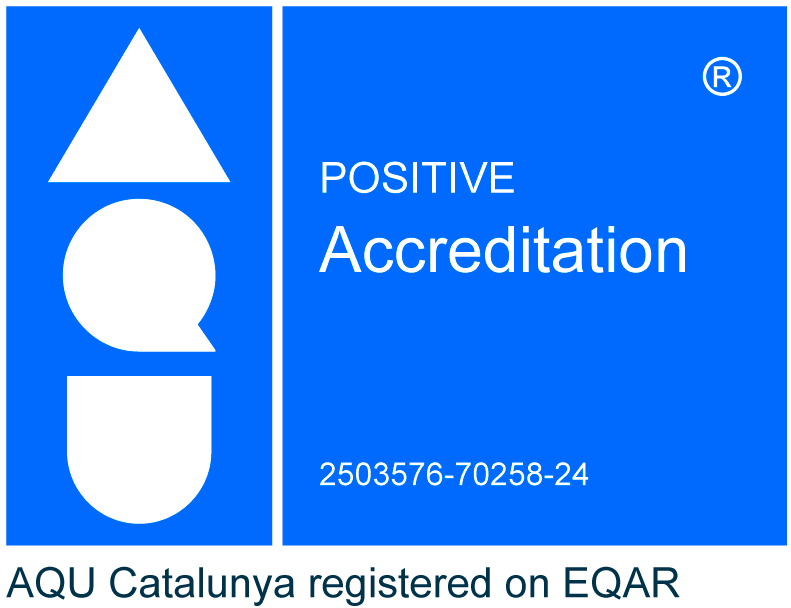Bachelor’s Degree in Bioengineering
What is Bioengineering?
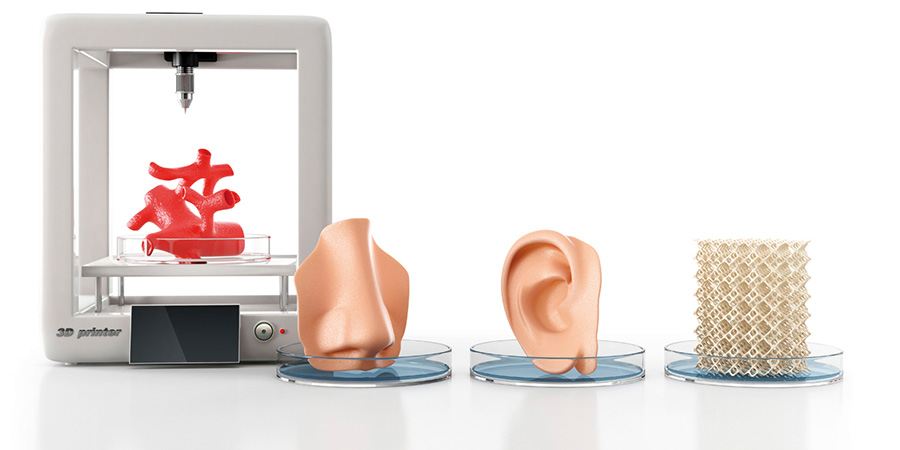
Bioengineering is a science that studies materials and how they interact with the body. It aims to generate materials that can be implanted in an organism that can either replace or regenerate the damaged organ or tissue.
It is a multidisciplinary science covering: basic sciences, clinical sciences, engineering and biology. This means bioengineers have a transversal, versatile knowledge with extensive professional opportunities.
Bioengineering is a discipline that applies principles of design, engineering and analysis to biological systems and biomedical technologies. Examples of bioengineering research include medical devices for diagnosis and treatment, custom bionic prostheses, and in vitro live tissue and organ generation
Why study Bioengineering at UIC Barcelona?
Our mission is to train inquisitive professionals whose knowledge enables them to develop and transform the world around them. We do it through innovation, rigour and personalised support. As a university, we are pioneers in research with national and international projects. We have an entrepreneurial spirit but we are also a community of people where the student is at the centre.
Our mission involves:
- A unique approach to the curriculum focusing on materials divided into two main areas: the interaction of the material with cells and their ability to regenerate tissue; and the application of these materials to replace limbs and create biomedical devices.
- A multidisciplinary faculty with international experience at both teaching and research levels.
- A Bioengineering Institute within the university, allowing students to engage in practical experience from their first year.
- Individual attention and support in small groups
- Practical experience and Final Degree Project with customised and flexible research projects. The faculty will advise you and help you discover the best way to carry out your project.
- International mobility: Possibility of developing research projects in research centres around the world.
The Bachelor’s Degree in Bioengineering is well-established in countries like the United States, Germany, Finland and Belgium, and there are several Master's degrees in Spain. However, UIC Barcelona is the only Spanish university to have a Bachelor’s Degree in Bioengineering.
Practices in national and international institutions

Job Opportunities
The Bachelor’s Degree in Bioengineering has a high employability rate due to the wide range of professional opportunities. Being a new form of technology means that there is little competition as of yet, and the sector is rapidly growing, with a high demand for labour.
You will be able to work in sectors as different as medical technology, the pharmaceutical industry, the cosmetic industry, the dental sector, the food industry or even in technology.
- In the healthcare field, forming part of medical teams.
- Head of R&D&I departments and manufacturing
- Design of new devices and creation/production of new materials
- Quality assurance department
- Medical device testing
- Design and production of custom-made devices
- Insurance company consultancy
- Research
Bioengineering is also a leading sector in industrial growth in Catalonia, with an industry that exports more than 50% of the products of the Spanish state as a whole and a growth of 260% in investment in the last 6 years
Research and teaching staff
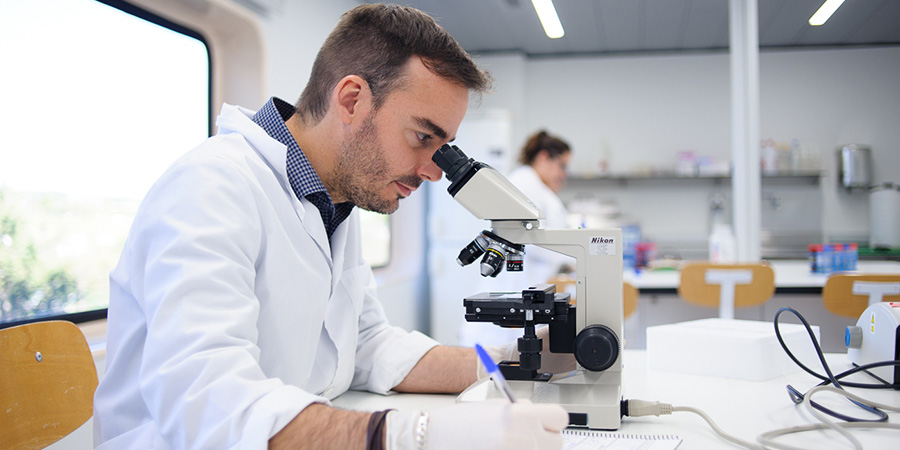
The teaching staff of the Faculty of the Department of Bioengineering has been trained at international centres such as MIT or Harvard and is a leader in innovation and research. Developing patents, working on national and international projects (Ministry, European projects) and renowned research grants (Ramon y Cajal, Juan de la Cierva and Beatriu de Pinós).
Facilities and equipment
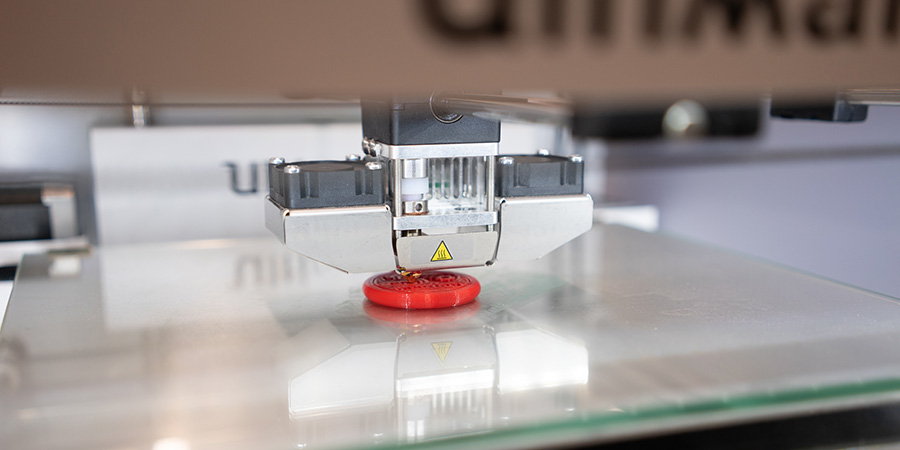
The faculty has two exclusive Bioengineering laboratories with state-of-theart equipment at the service of students. In addition, Bioengineering is located in Sant Cugat, in the Faculty of Medicine and Health Sciences. This allows not only to have direct contact with the different clinics and to benefit from or all the facilities, but also helps to generate synergies with degrees such as dentistry, medicine, nursing or physiotherapy
Interdisciplinary team
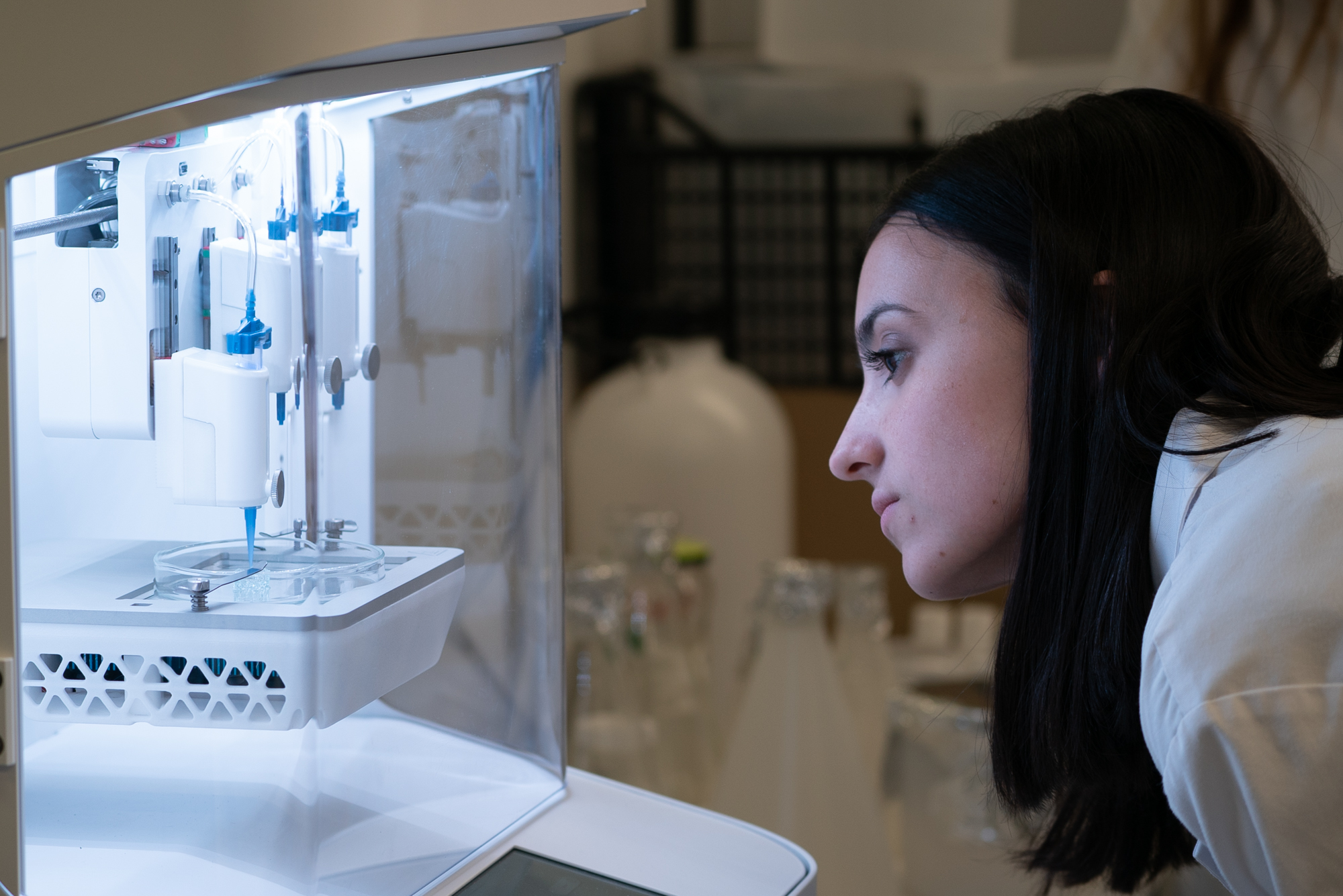
Take part in an interdisciplinary programme, alongside teams of dentists, doctors, nurses, pshychologyst and physiotherapist.
Students tell you their experience
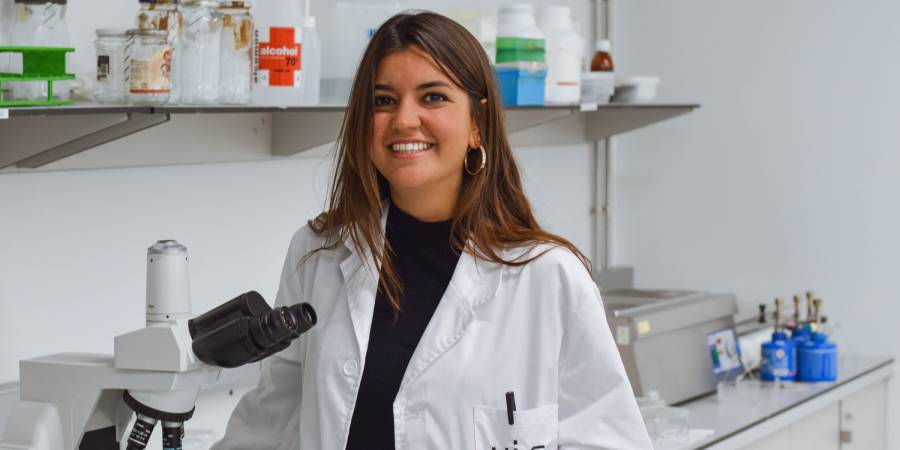
“Since it is such an interdisciplinary degree, I learn plenty of new things every day that feed my curiosity for what surrounds me. And I am certain that this will be useful to, one day, help people from an innovative and different perspective. I like to think that in the future I will be able to say that I am a bioengineer, I like that it sounds complicated, that it is a challenge, because it motivates me to be committed to what, right now, I am passionate about every day.”
Berta Madurell Galera
Bioengineering student
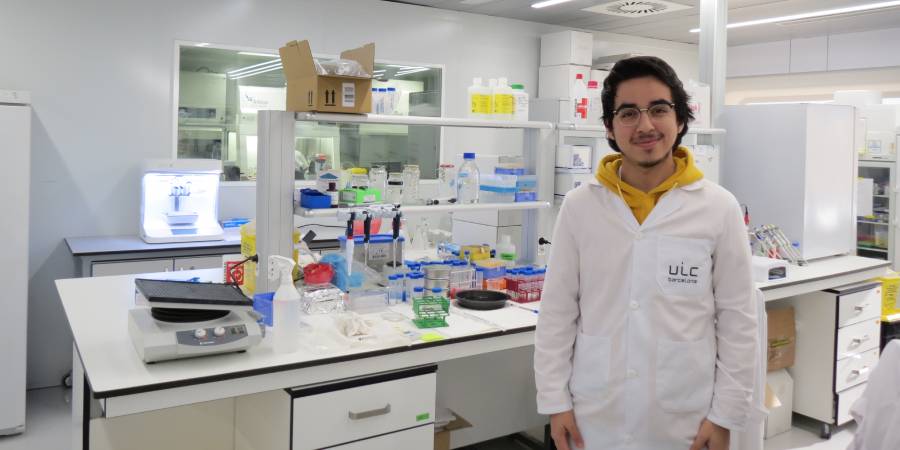
“In my family, one of the qualities that has been most encouraged is helping others. For this reason, since a young age, I always thought that to choose a degree, one of the key aspects that I would need would be for it to allow me to help people. And that is what the Degree in Bioengineering does, it provides people who need it with a better quality of life: either through research to improve the needs of human beings, research in the general field of bioengineering, or by improving and creating different prosthetics, among other things. This degree focuses on meeting students' desire to combine theoretical and practical lessons, by offering use of the laboratories throughout the degree.”
Leo Pinto
Bioengineering student
Internationalisation
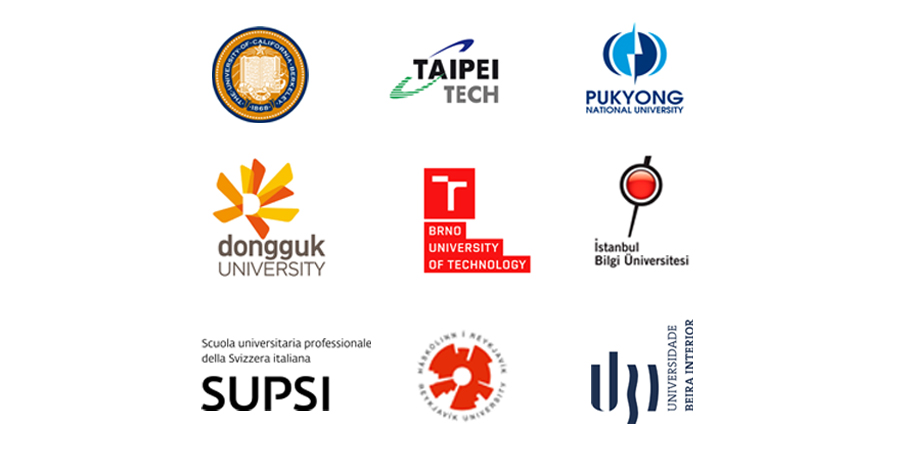
We encourage the international mobility of our students with the possibility of developing research projects in research centres around the world.
UIC Barcelona has collaboration agreements with more than 15 prestigious universities in the United States (California), Switzerland, Turkey, China or South Korea and also supports and helps its students in the active search for new collaboration agreements with companies and institutions.
Additional information
Presentation
According to the Spanish National Institute of Statistics, life expectancy increased by 1.1 years between 2007 and 2013. Sociodemographic change and long life expectancy in Europe have meant that healthcare is focusing on new horizons. The electrical and communications industry have facilitated the creation of batteries, microcomputers, new polymers and plastics, which mean that prosthetics and orthoprosthetics have become lighter, more resistant and look more real. In the area of robotics and electronics, it has been possible to develop improved prosthetics through control and adaptation systems until the point where they can create prosthetics controlled through muscular stimulation.
An innovative bachelor’s degree that combines science and technology to improve clinical care. The Bachelor’s Degree in Bioengineering applies the principles of engineering to biological systems and strives to improve patients’ quality of life through devices and materials that can substitute or regenerate damaged body parts.
You will use your knowledge of basic sciences, such as physics, chemistry and biology to design materials capable of stimulating biological processes in our organism and combine them with concepts of engineering to develop materials that can substitute or regenerate tissue.
Who is it intended for? Prospective students
If you have a desire to help society in the field of health sciences, this could be the profession for you. Becoming an engineer via this degree and learning about the latest technology will ensure you can manage to design and manufacture prosthetics and orthotics (depending on the specialisation you choose) for patients who need it. This will allow them to become more integrated into society and ensure they can obtain a physical or aesthetic improvement.
Anyone who fulfils the admission criteria and general prerequisites for access to the degree programme is eligible to apply. You must be able to prove that you have a vocational attitude towards science, techniques and healthcare in which the following skills stand out:
- Organisational skills, a good memory and motivation
- Good decision-making skills
- Psychological qualities and empathy
- Emotional balance
- An interest in research
- Responsibility and a strong work ethic
- Observation skills
- Good at teamwork
- An interest in helping people and the community
- Assertiveness
- Manual skills
Professional opportunities
This bachelor’s degree allows students to develop a future professional career in various fields. These include:
Research
- Directing R+D+I departments and manufacturing processes
- Designing new machinery and creating/producing new materials
- Quality departments
- The verification of medical devices
- The design and production of custom-made devices
- Consultancy in insurance companies
- Competences
- As bioengineers, these future professionals will learn to both design and manufacture using the latest technology, to help people who need to integrate into society better and also achieve physical or aesthetic improvements.
- Students will learn to become professionals in the field of engineering with an approach based on professional specialisation and innovation.
- Students will acquire the conceptual and manual tools and necessary skills to design devices.
- Students will learn to form part of a multidisciplinary team.
- Students will learn how to create and manage a R+D department, from required administrative and healthcare documentation to managing products, buying material and human resources.
- Students will learn to check healthcare devices to detect any faults and identify measures to correct them.
Academic accreditation
Graduado o Graduada en Bioingeniería por la Universitat Internacional de Catalunya.
Teachers
- ALEU VILALTA, Jordi
- BONFILL GARCIA, Aleix
- BOSCH CANALS, Begoña María
- BOSCH PITA, Miguel
- CARDÓ OLMO, Carles
- CARRASCO URIBARREN, Andoni
- CASALS FARRÉ, Núria
- CASTRO OTERO, Emilio
- CLIMENT PEDROSA, Ana Maria
- CORTINA RAMOS, Albert
- CRISTOBAL LECINA, Edgar
- DELGADO GARCIA-MENOCAL, Jose Angel
- DELGADO GAROÑA, Luis Maria
- DEMESTRE VILADEVALL, Maria
- ESPORRÍN UBIETO, David
- FERNÁNDEZ BORSOT, Gabriel
- FONT I PLANAS, Adrià
- FRANK, Josh
- GERLOFF TOLOSA, Anna Charlotte
- GIL MUR, Javier
- GIORDANO, Ana Bárbara
- GIRONZA MARQUÉS, Alfonso
- GOUX CORREDERA, Iphigénie
- GUILLAMAT BASSEDAS, Pau
- GUIRAO CANO, Luis
- HERRERO GÓMEZ, Alba
- MACPHERSON MAYOL, Ignacio
- MANOUSAKIS, Evangelos
- MARIMON SERRA, Xavier
- MARTÍN SÁNCHEZ, Juan Carlos
- MATEOS TIMONEDA, Miguel Angel
- MEDINA CASANOVAS, Josep
- MEHRAD, Aida
- MEZQUITA MAS, Betlem
- MIRÓ JULIÀ, Cristina
- MOBARAKI, Behnam
- MOLINS MONTEYS, Blanca
- MORA GUIX, Jose María
- MORENO DUARTE, Daniel
- MORÓN ROS, Samantha
- MUÑOZ LÓPEZ, José
- NAVARRO MATEU, Diego
- OLIVER DE LA CRUZ, Jorge
- OLMOS BUITRAGO, Jenifer
- ORTIZ I MIGUEL, Sara
- PACHECO DORIA, Mauricio
- PAWAR CHAUHAN, Nisha
- PEREZ ANTOÑANZAS, Roman
- PÉREZ BELLMUNT, Albert
- PÉREZ, Soledad Graciela
- PORTELA OTAÑO, Alejandro Ernesto
- QUANDT HERRERA, Eva
- REGIDOR PEREZ, Enrique
- ROCA MARVÀ, Francesc Xavier
- RODRIGUEZ RODRIGUEZ, Sergi
- RODRIGUEZ SANZ, Jacobo
- RONZONI, Alessandro
- ROSSELLO JIMÉNEZ, Daniel
- SÁNCHEZ ALBALADEJO, Gema
- SORRIBAS OLIVERA, Marcel
- VÁZQUEZ OLIVER, Anna
- VILLACE GALLEGO, Pablo
- ZAMBELLI, Filippo
- ZÁRATE TEJERO, Carlos Antonio
Internship
Important links
Learning by working in external companies or technology centres allows students to have direct contact with the professional world and gain practical experience before completing their academic studies.
Objectives
Introduction to the world of work to integrate and apply theoretical knowledge in different professional contexts. Work placements will help students develop skills, competencies, attitudes and abilities:
- To promote entrepreneurship and acquire knowledge applied to the organisation and management of bioengineering companies while learning about their legal framework and the regulations in force at that time.
- To understand company organisation and the science that governs their activities; to have the ability to apply work-related rules and the relationship between planning, industrial and commercial strategies, quality and profit.
- To know how to communicate learning results to other people, both verbally and in writing, as well as thought processes and decision-making; to participate in debates in each particular specialist area.
- To detect gaps in students’ own knowledge and overcome this through critical reflection and choosing better actions to broaden this knowledge.
- To convey information, ideas, problems and solutions to specialist and non-specialist audiences.
Organisation of the work placements
The Universitat Internacional de Catalunya offers students the opportunity to undertake a work placement during the final academic year of the bioengineering degree programme. The work placements are undertaken in the place determined by the company or technology centre and with professionals from the sector of interest.
Each student is tutored by a professional from the company or technological centre during the 240-hour placement period (external tutor). In addition, a lecturer from our University (academic tutor) monitors the student by conducting ten hours of tutorials to ensure their learning and satisfaction level during the placement and to encourage them to reflect on their experience.
The coordinator and placement tutors supervise and plan for the smooth running of the placement, as previously agreed in the work plan.
The distribution of the work placement hours is planned and agreed upon with the company or technology centre. The work placements should start from the second semester and preferably be full time. It is not possible to recognise previous external work placements without having established a work plan and without having followed the assessment systems and criteria.
The content of in-company learning is subject to the host centre and the type of project proposed in the work plan. The content and the period of the placement must be specified in the work plan and must be agreed upon with the external tutor from the company or technology centre. The work plan will be evaluated by the University's academic tutor and must be approved before the work placement begins.
Work placements must be part of a curricular agreement between the University and a company or technology centre. It is impossible to start accredited external placements as part of the curriculum without an established agreement.
Students can take other subjects whilst undertaking their work placement in order to complete their curriculum. However, it is the student's responsibility to combine the different obligations and in no case should it affect the activities involved in the external placement.
Students must choose their work placement category in the first semester and it must be organised in good time, taking into account the possibility of interviews with the company or technology centre and the time needed to establish the cooperation agreement.
The work placement categories are:
- Work placements in a national external organisation, aside from the internal Final Degree Project at UIC Barcelona.
- Work placements in national external organisations merged with the student’s Final Degree Project.
- Work placements at UIC Barcelona merged with the student’s Final Degree Project at the same institution.
- Work placements in international external organisation (Erasmus model) merged with Final Degree Project in the same organisation.
Final Degree Project
The Final Degree Project (TFG) is fundamentally a self-led project that each student will complete under the guidance of a tutor who will help to motivate and facilitate their learning. The student will present and defend their Project before an academic jury. The TFG must demonstrate the acquisition of competences and the content studied during the Bachelor’s Degree in Bioengineering in a comprehensive manner.
The 17 ECTS credits awarded for the TFG are compulsory for students to obtain their degree, as indicated in Royal Decree 1393/2007, modified by Royal Decree 861/2010, which establishes the organisation of official university education. Final Degree Projects should be produced in accordance with the subject's Course Guide and the UIC Barcelona TFG regulations. In the curriculum for the Bachelor’s Degree in Bioengineering, the TFG is a subject assigned to students in their last academic year of the programme.
Pre-requisites
The TFG is the final subject of the degree programme. For this reason, students can only enrol during the final enrolment period of the Bachelor’s degree. As usual, enrolment must not exceed 72 ETCS credits per academic year.
Objectives
To apply all the knowledge and skills acquired throughout the degree programme in an integrated manner by carrying out and defending an individual, autonomous, supervised, original and unpublished research project:
- To make competent use of information resources, identifying one's own information needs and using the collections, spaces and services available to design and execute searches appropriate to the subject area.
- To manage the acquisition, structuring, analysis and visualisation of data and information in your specialist area and critically evaluate the results of this management.
- To carry out a project in the field of specific bioengineering technologies of a professional nature in which the competences acquired in the courses are synthesised and integrated and in which the correct use of project management techniques and tools is demonstrated, including their planning, development and execution.
- To have the ability to assess and analyse the economic cost and the social and environmental impact of the different tasks involved in the Project.
- To know how to complete the work assigned to them following the basic guidelines given by the tutor, deciding on the time to be spent on each section, including personal contributions and expanding on the sources of information indicated.
- To write texts with an appropriate structure to communicate objectives and present the text to an audience using the appropriate strategies and means.
Prerequisites & admissions
Application for admission
In order to pre-register for degree studies at UIC Barcelona, you can contact:
Mara Carmona
mcarmonaf@uic.es
+34 651 82 60 93
Exam content
- Test específic de coneixements de biologia, química, física i matemàtiques (nivell de 1r de batxillerat)
- Test psicotècnic
- Test de cultura general
- Test de nivell d’anglès
- Entrevista amb la facultat
- Temari Prova específica
Required documentation
You can access UIC Barcelona via various access routes, each of which requires specific documentation. Interested parties can click on the following link to find out what documentation you need to provide for each particular case.
Entrance exam results
Reservation and enrolment
Once the admission process is over, students will make a payment of 20% of the full cost of the postgraduate degree, in order to reserve their place on the course, after they have received an official letter of admission.
You must pay the remaining 80% in one lump sum once enrolment is complete.
Access routes
Admission to UIC Barcelona is possible for students with different academic backgrounds. Via the following link you can obtain information about the route via which you should access UIC Barcelona, based on your specific academic background.
Grants & financial aid
Grants
UIC Barcelona offers various fellowships supported by both public institutes (MEC or AGUAR) as well as private UIC Barcelona funds.
For further information, please check with our admissions department:
Financial aid
Each payment method is adhered to the specific financing conditions of each degree programme.
Please see the attached document for details on these conditions:
Discounts
Those seeking undergraduate degrees at UIC Barcelona may be eligible for different discounts depending on their circumstances.
Faqs
International mobility
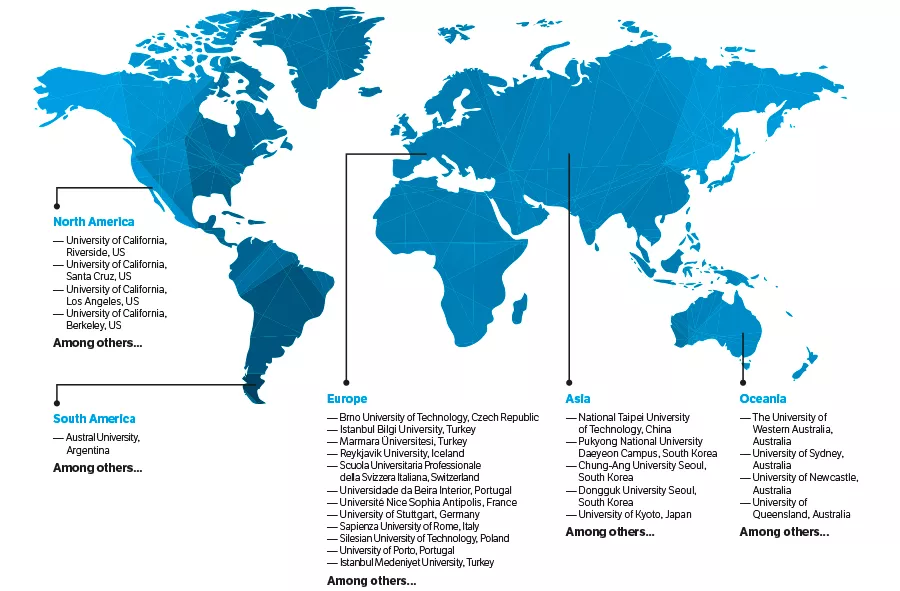
Study abroad temporarily
As a student in this degree programme, you may complete part of your degree or a work experience placement abroad and receive academic recognition.
Spend a semester or a full academic year at one of your Faculty’s partner universities or find a company abroad to do an internship. You may also:
- Attend the Berkeley Summer Sessions (extracurricular activity) the world’s best public university.
For information about everything you need to do before, during and after your mobility stay, check out the "Study abroad" section and download all the documentation specific to your Faculty:
Study with us temporarily
If you are a student from another Spanish or foreign university, you can do a mobility stay at UIC Barcelona for a semester or a whole academic year.
If you want to know the specific criteria, please contact the International Relations Office (exchange.scu@uic.es).
